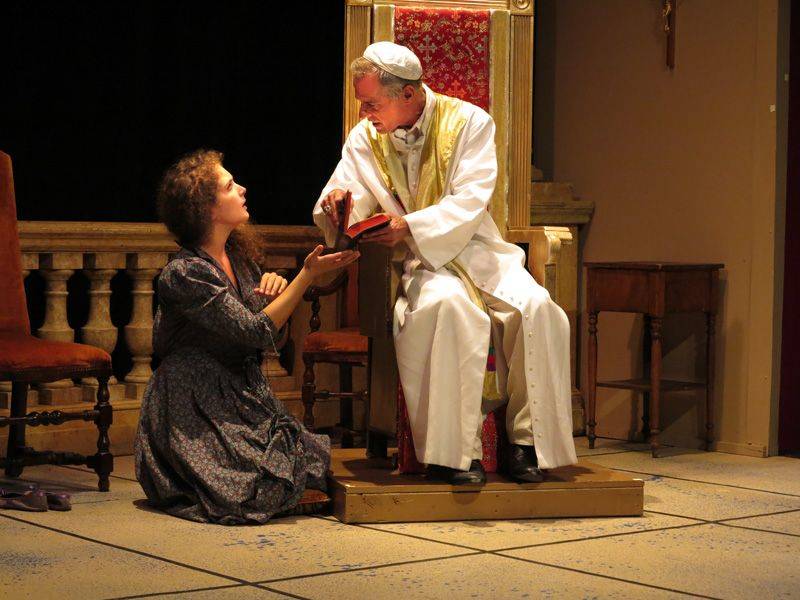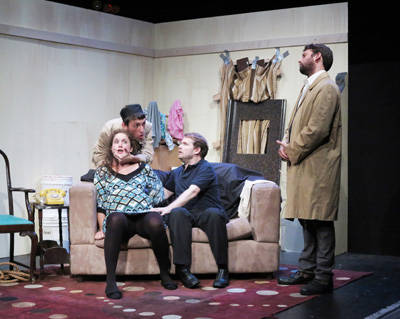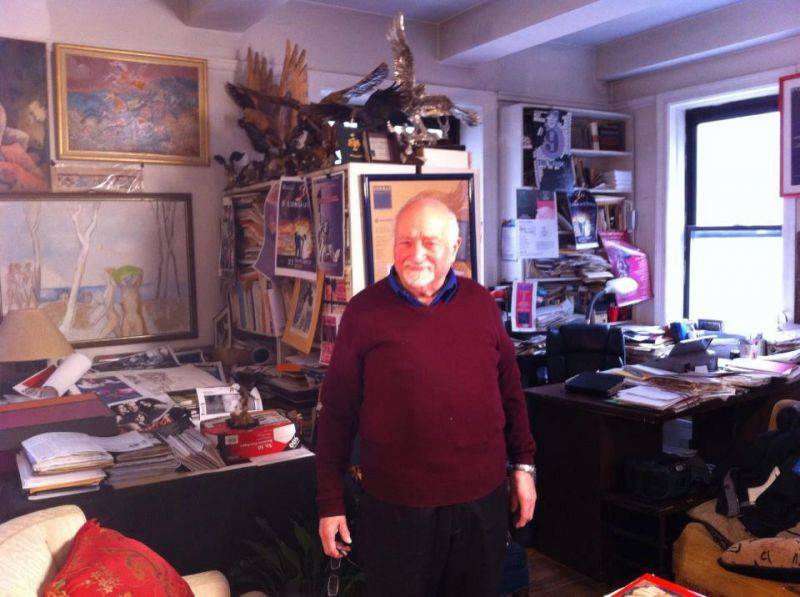Fratti's The Vatican Knows (About the Kidnapping of that Young Woman)
Emanuela Orlandi 'was kidnapped for sex parties for Vatican police' (The Telegraph)
Italian Police Open a Mobster’s Vatican-Owned Tomb in Search of a Missing Girl (The Daily Beast)
What happened to the missing 15-year-old Vatican citizen Emanuela Orlandi? (The Spectator)
Vatican reaffirms willingness to help solve mysterious 1983 kidnapping case (The Catholic Register)
Crime Boss’s Tomb Is Exhumed for Clues in Missing Girl’s Case (The New York Times)
The titles of these articles published in May 2012 talk about an unsolved mystery, a
disappearance that is still an unfinished chapter of Italy's history. On 22 June 1983, a 15-year-old citizen of the Vatican, Emanuela Orlandi, went missing. Emanuela was the fourth of five children born to Ercole, a clerk in the Vatican, and Maria Orlandi. That evening she left home to go to her music lesson. She took the number 64 bus to her music school, arriving late. Appearing worried, she asked to leave the lesson early, at 6.50 p.m. She was never seen again.
There are at least a dozen versions of what might have happened to her, and each possibility seems simultaneously credible and incredible, from the involvement of the Italian secret services, organized crime, and even “the attempt to assassinate John Paul II.”
It was the New York Times' article about another theory, linked to the exhumation of the tomb of a notorious local crime boss at a Vatican church that inspired playwright Mario Fratti to write The Vatican Knows (about the kidnapping of that young woman). The Times article mentioned that weeks after her disappearance, the Vatican received a phone call demanding the release of Mehmet Ali Agca, the gunman who wounded Pope John Paul II in 1981. Brooding on this, Fratti created a personal vision of a possible scenario in which terrorists plot to kidnap a young woman who lives at the Vatican to blackmail the Pope. The play, staged at the Theater for the New City from October 3 to 20, directed by Stephan Morrow, savors the mystery and then looks beyond it.
“I like to write provocatively,” Fratti, who has just returned from Italy where he received the prestigious Capri Award for his "Forbidden Diary" (Diario Proibito), his only novel, written when he was 20 about the horrors of the German invasion of Italy, told i-Italy after one of the performances, “I want to see the reaction of the audience, the stupor on their faces after I show something intense and hard to digest.”
“The guilty ones should be punished, eradicated. They are a cancer. Sexual misconduct affects us all.” The Pope tells Cardinal Ratzinger in the very first scene of the play, a scene where the testimony of a man abused by a priest when he was a child, introduces the scandals the Church is guilty of.
The story, though, focuses on Emma's fantasies about being fathered by the Pope. Fratti endows the young girl with admirable devotion to her "father" and him with admirable compassion toward her. This gives the play a twin enigma: whether she was actually, the Pope's daughter and why the Vatican would react as it does to her kidnapping. The playwright also gives a strong voice to the Turkish kidnappers, who are multi-dimensional yet unwavering in their mission.
“The actors, Lucas Beck, Giulia Bisinella, Jacob Cribbs, Ian Campbell Dunn, Debbie Klaar, Timothy Roselle and Mark Ethan Toporek are really doing a great job,” Fratti exclaimed enthusiastically, “they were able to bring to life the characters I had in my mind and the mystery surrounding the kidnapping.” They were masterfully led by director Stephan Morrow who has directed several of Fratti's plays.







































i-Italy
Facebook
Google+
This work may not be reproduced, in whole or in part, without prior written permission.
Questo lavoro non può essere riprodotto, in tutto o in parte, senza permesso scritto.